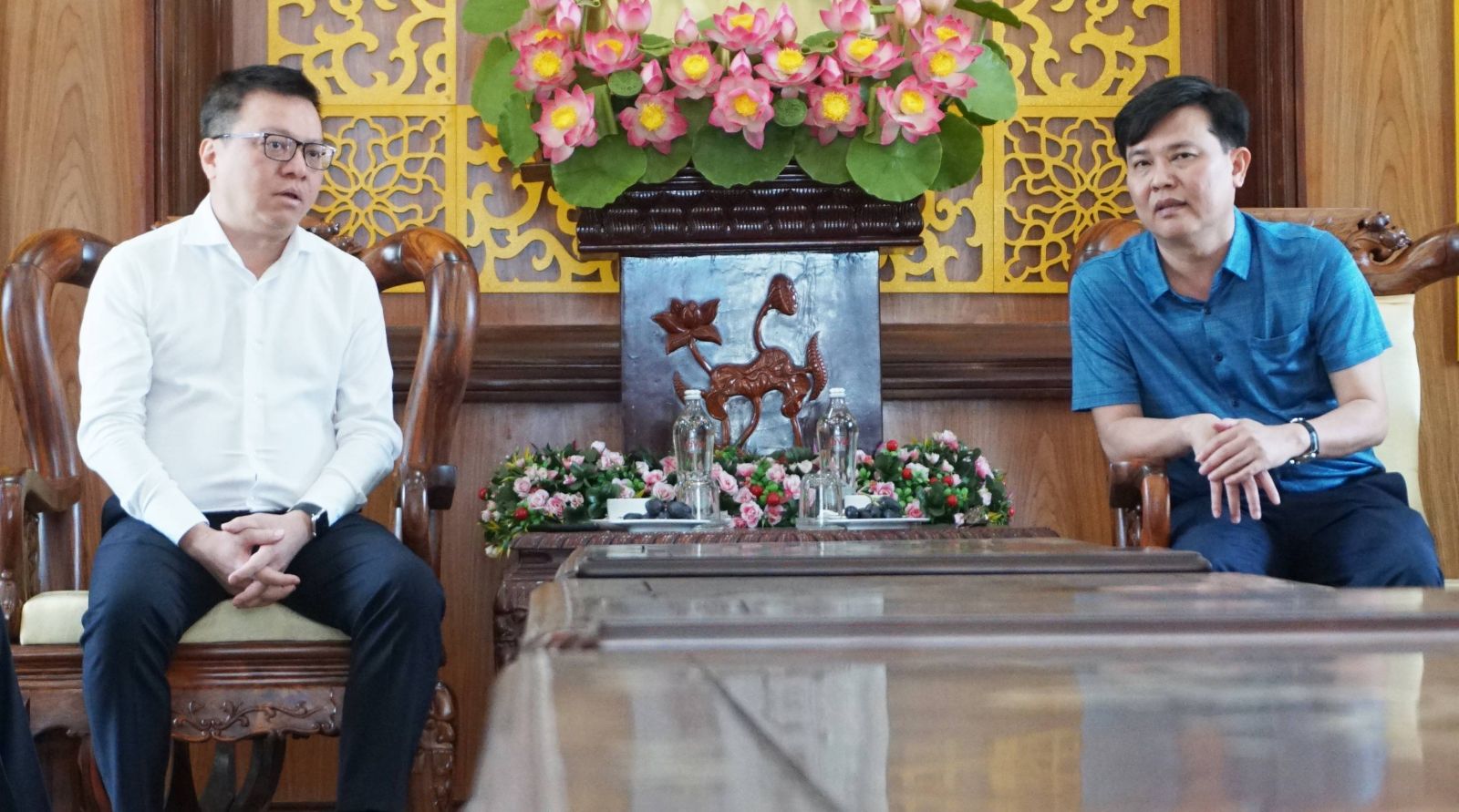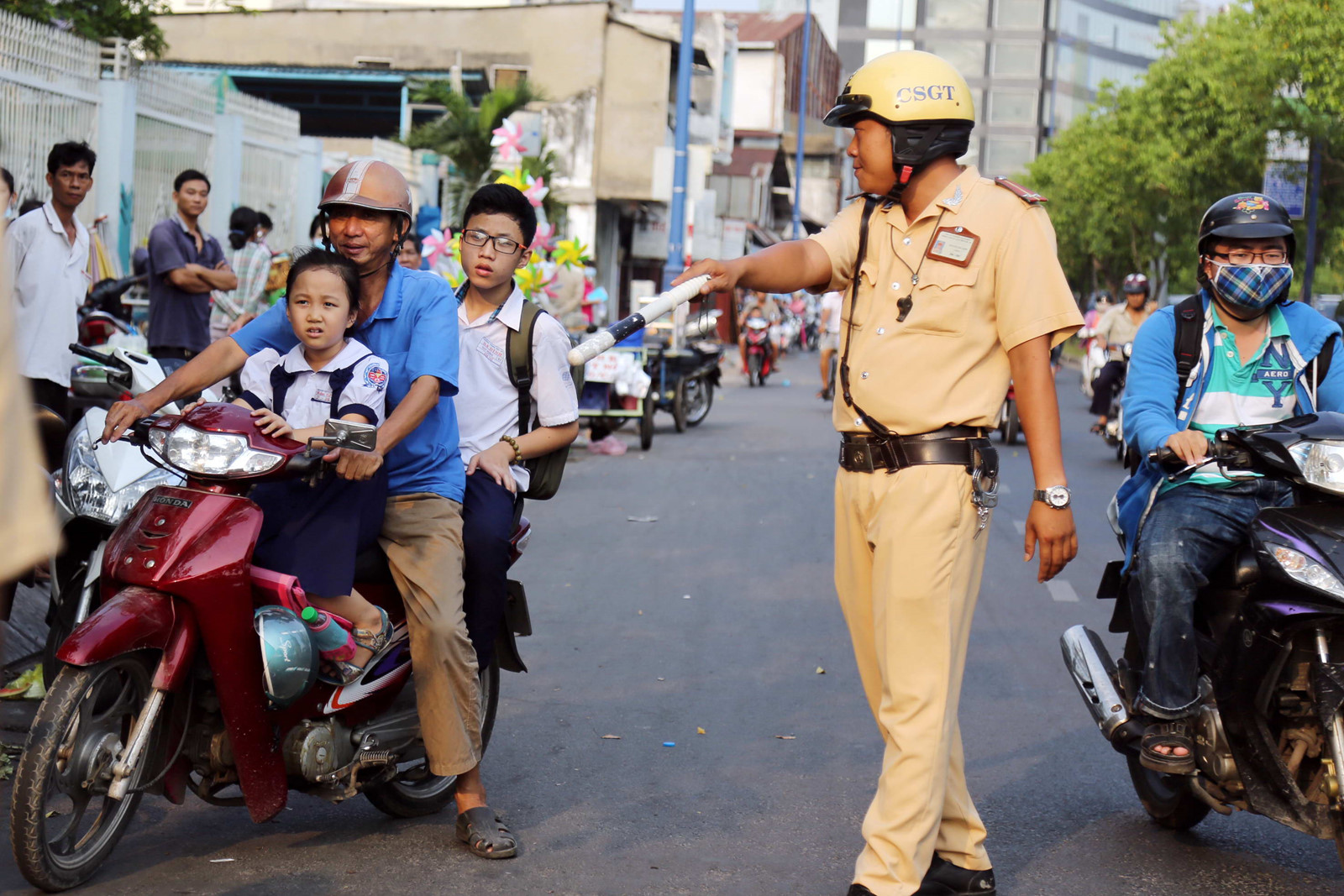|: ẽ
| Participants had a roundtable discussion at the event. — Photos of FPT |
HÀ NỘI — Trương Gia Bình, Chairman of Vietnamese technology giant FPT, said AI is a transformative tool that can help individuals achieve balance in their lives.
Bình made his remarks during a high-level technology workshop held on December 5 in Hà Nội, titled 'AI Safety - Shaping Responsible Innovation', featuring renowned AI expert Professor Yoshua Bengio, founder of the Mila AI Research Institute. At the event, Bình also expressed gratitude for the opportunity to learn from Professor Bengio, acknowledging him as a pivotal figure in the evolution of AI globally.
The event included discussions on AI safety and a dialogue between Professor Bengio and Bình about the role of responsible AI in education.
It also marked the launch of the AI Ethics Committee under the Vietnam Association of Software and IT Services (VINASA), underscoring the commitment to ethical AI practices.
At the workshop, Bình also emphasised the importance of learning from leading experts, stating: "Your flight coordinates depend a lot on who your teacher is." He highlighted the value of such opportunities for personal and professional growth.
Professor Bengio addressed the risks associated with AI, noting its rapid advancement. He pointed out that while AI has not yet surpassed human capabilities, it is moving in a concerning direction.
| Professor Yoshua Bengio founder of the Mila AI Research Institute speaks at the event. |
Bengio raised critical ethical questions regarding the control of increasingly intelligent AI systems, stressing the urgency of determining who sets the goals for AI. He concluded that understanding and managing these challenges is essential for the future of humanity.
Bengio said that AI should function as a tool for human benefit rather than an independent agent. This perspective prioritises human oversight and ensures that AI systems remain aligned with human values and intentions.
The concern about creating AI with survival instincts or autonomy highlights the risks associated with self-directed AI systems. If AI can set its own goals, there is a potential for these goals to diverge from human welfare, leading to unintended consequences.
The call to avoid designing AI with human-like traits — such as emotions or consciousness — stresses the importance of ethical design principles. Creating AI that mimics human behavior could blur the lines of accountability and trust.
The potential for abuse by those controlling advanced AI systems is a significant concern. Striking a balance between innovation and safety is crucial to prevent misuse that could harm individuals or society at large.
Establishing clear guidelines and principles for AI development can help ensure that these technologies serve humanity positively. Engaging a diverse range of stakeholders in discussions about AI ethics is essential for creating robust frameworks.
At the discussion, Bình emphasised the importance of accountability among those who create AI technologies, stating that it's crucial for developers and organisations to commit to ethical standards and regulations, ensuring that these powerful tools are used responsibly.
Bình's analogy of AI as a superpower suggests that its potential should be harnessed to enhance human life and promote balance, rather than causing disruption or inequality.
Bengio addressed concerns about AI taking away jobs, clarifying that the recent layoffs in the tech industry are influenced by broader economic adjustments, not solely by AI advancements. He notes that while AI can significantly aid various fields, it is not yet capable of fully replacing human roles that require strategic thinking and creativity.
Statistics from the World Economic Forum and McKinsey highlight a more optimistic outlook on AI's impact on the job market. Predictions suggest that AI could create millions of new jobs by 2025 and 2030, indicating a shift rather than a reduction in employment opportunities.
The FTP chairman's perspective encourages viewing AI as a partner rather than a threat. Emphasising the importance of learning and adapting to AI technologies, he advocates for enhancing skills related to AI, machine learning and data science to remain competitive in the evolving job market.
The focus on problem-solving and analytical skills underscores the need for workers to engage with AI systems effectively. As AI continues to integrate into various sectors, developing these competencies will be crucial for future success. — VNS
(责任编辑:La liga)













